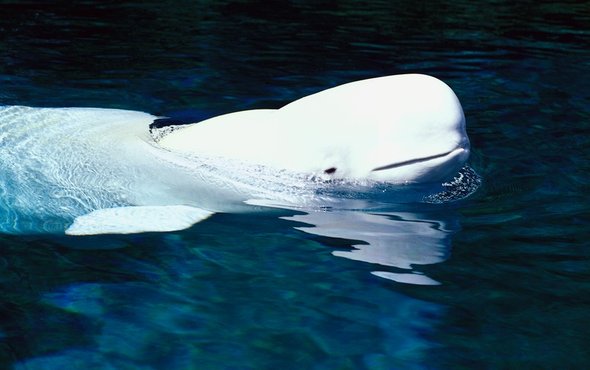This is Scientific American — 60-Second Science. I'm Christopher Intagliata.
Beluga whales rely on a sharp sense of hearing to communicate, to navigate and to feed. (beluga sounds) But the ocean is a noisy place. There's commercial shipping, there's navy sonar, oil and gas extraction, pile driving, underwater explosions.
So one way to tell if all that noise is affecting belugas: capture them for a routine physical. "So it's kind of like going to the doctor's office for them, but they're also kind of abducted by aliens at the same time."
Aran Mooney, a marine biologist at the Woods Hole Oceanographic Institution. He and his team captured 26 belugas in Alaska's Bristol Bay for a battery of checkups, including a hearing test.

"We can play a very controlled, designed sound to the animal, a hearing test tone." (hearing test tone) Then they measured the beluga's brain response using an electrode on the animal's head.
The diagnosis? "They're doing fantastic—and they're better than what we thought they were going to be." And older belugas seemed to have less age-related hearing loss than aging dolphins screened in previous studies. The full bill of health is in the Journal of Experimental Biology.
These belugas live in a relatively pristine environment, which might explain why they aced the hearing test. Animals in noisier waters might not fare so well, Mooney says. And the same might go for belugas as the volume slowly rises in the underwater Arctic.
Thanks for listening for Scientific American — 60-Second Science. I'm Christopher Intagliata.











